Collection
Date
Location
Type
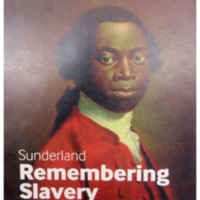
Sunderland Remembering Slavery
Remembering Slavery 2007 involved museums, galleries and other cultural organisations across the North East of England in a programme of exhibitions, events, performances, lectures and activities to explore the themes of slavery and abolition, and identify connections with the region.
In…
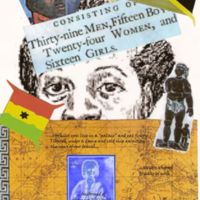
Hidden Stories
A collaborative project between Barnsley Archives and Local Studies, the Cooper Gallery and Cannon Hall exploring local connections to the slave trade. Cannon Hall is the ancestral home of the Spencer Family, who made their fortune in the local iron industry. In the mid-18th century, Benjamin…
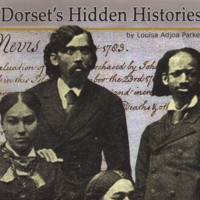
Dorset's Hidden Histories
DEED (Development Education in Dorset) works within the community to develop understanding of global education and cultural diversity. The charity produced and made available to hire the Dorset's Hidden Histories touring exhibition, which explored 400 years of the stories of people with African and…
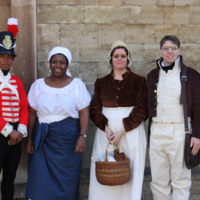
Beyond the Bicentennial
In collaboration with the Peterborough branch of the African Caribbean Forum, Peterborough Museum hosted 'Beyond the Bicentennial, 1788-1838: Exploring 50 Years of the Slave Trade'. The exhibition's focus was the fifty years leading up to the end of slavery in the British Empire, 1833. It…
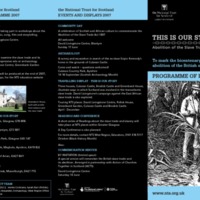
This is Our Story
To mark the bicentenary, the National Trust for Scotland put together a wide-ranging programme of events to engage their audiences with Scottish connections to slavery and abolition. Three National Trust for Scotland properties in the West of Scotland – Culzean Castle, Brodrick Castle and…
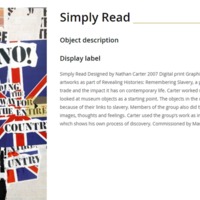
Revealing Histories: Remembering Slavery (Manchester Art Gallery)
As part of the Revealing Histories: Remembering Slavery project, Manchester Art Gallery highlighted items in its collection of fine art and decorative objects which revealed the wealth generated by the region's involvement in the transatlantic slave trade and the public's consumption of sugar, tea,…
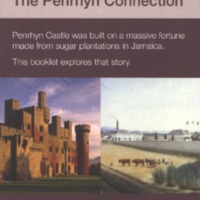
Sugar and Slavery - The Penrhyn Connection
Penrhyn Castle on the outskirts of Bangor in Wales is owned by the National Trust. In 2007, the bicentenary was marked with a special exhibition and accompanying events exploring the connections between the Castle and the fortune of its former owners, the Pennant family, built on Jamaican sugar from…
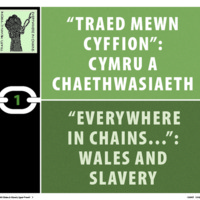
Everywhere in Chains: Wales and Slavery
Everywhere in Chains was an umbrella project created for the bicentenary commemorations in 2007, by a collaboration between Amgueddfa Cymru - National Museum Wales, the National Library of Wales, University of Wales, Bangor and CyMAL: Museum Archives and Libraries Wales (part of the Welsh Assembly…
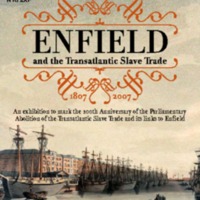
Enfield and the Transatlantic Slave Trade
An exhibition to mark the bicentenary was developed by Enfield Museum Service in partnership with the British Museum and Enfield Racial Equality Council. The exhibition looked at West African culture, the development of the local African community, the links between the transatlantic slave trade and…
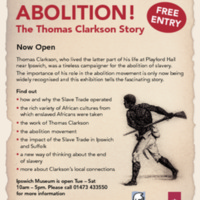
Abolition! The Thomas Clarkson Story
Colchester and Ipswich Museum Service produced an exhibition about slavery and the trade in enslaved Africans and the life of Thomas Clarkson, the abolitionist campaigner who lived the latter part of his life at Playford Hall near Ipswich. The exhibition focused in particular on the African and…
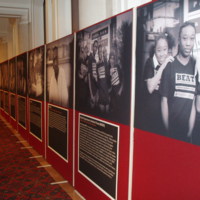
Freedom Roads
The Freedom Roads exhibition at Guildhall Art Gallery was one of several initiatives led by London Metropolitan Archives to mark the bicentenary. The exhibition featured contemporary photographic portraits of people of African origin whose work has contributed to the continuing struggle for human…
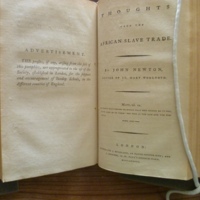
From Slave Trade to Fair Trade
The Cowper and Newton Museum is located in Olney, Buckinghamshire, in the building that was once the home of the 18th century poet William Cowper. The Reverend John Newton - formerly master of a slave ship - was Cowper's great friend, and wrote the abolitionist hymn 'Amazing Grace' in collaboration…

2007 Bicentenary for the Abolition of the Slave Trade Act at the National Maritime Museum
The National Maritime Museum marked the bicentenary with a range of initiatives and events including a new exhibition, a film season, poetry, music, debates, and new publications. A new permanent gallery opened at the museum in winter 2007 exploring Britain's Atlantic empire. A catalogue of…